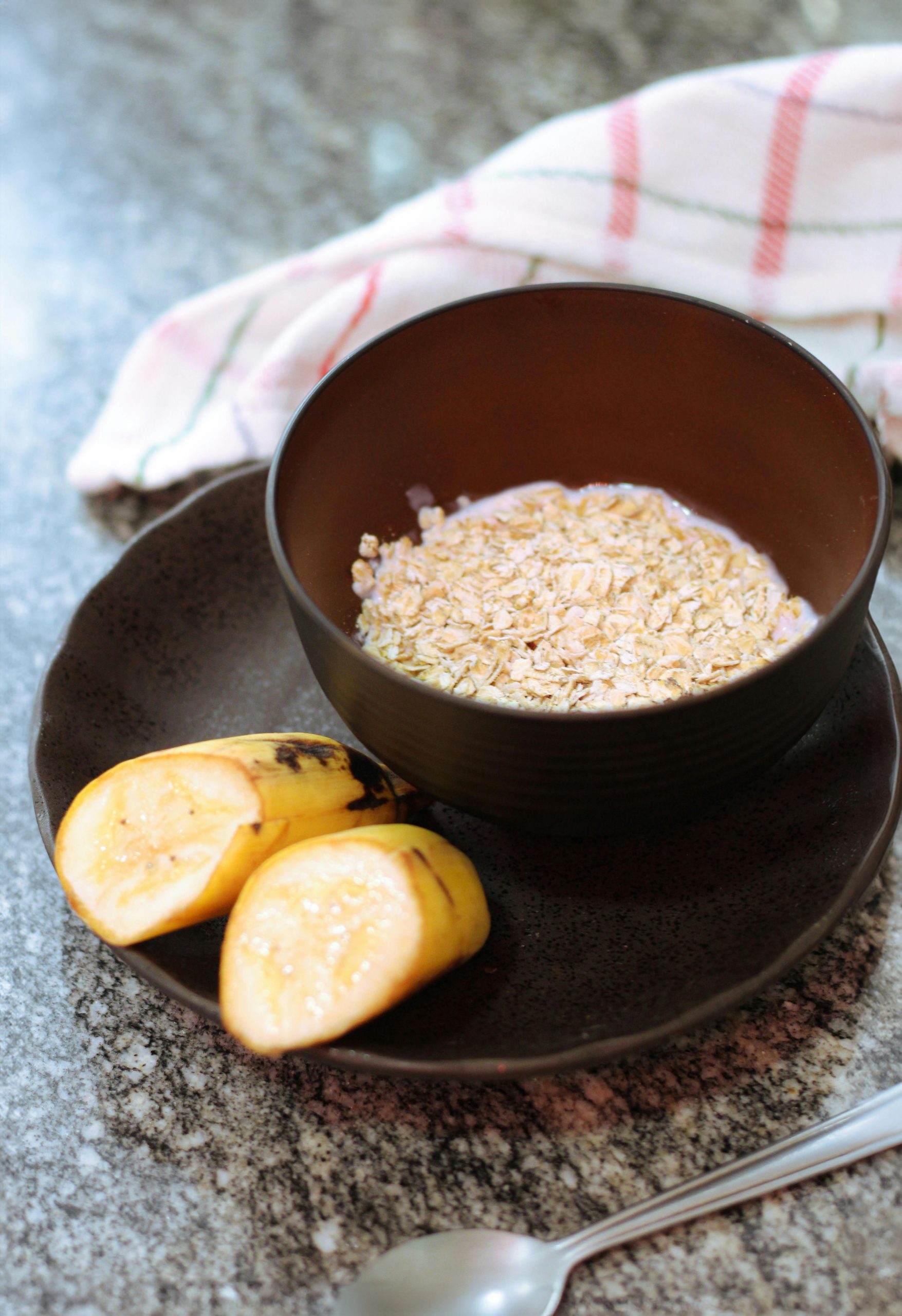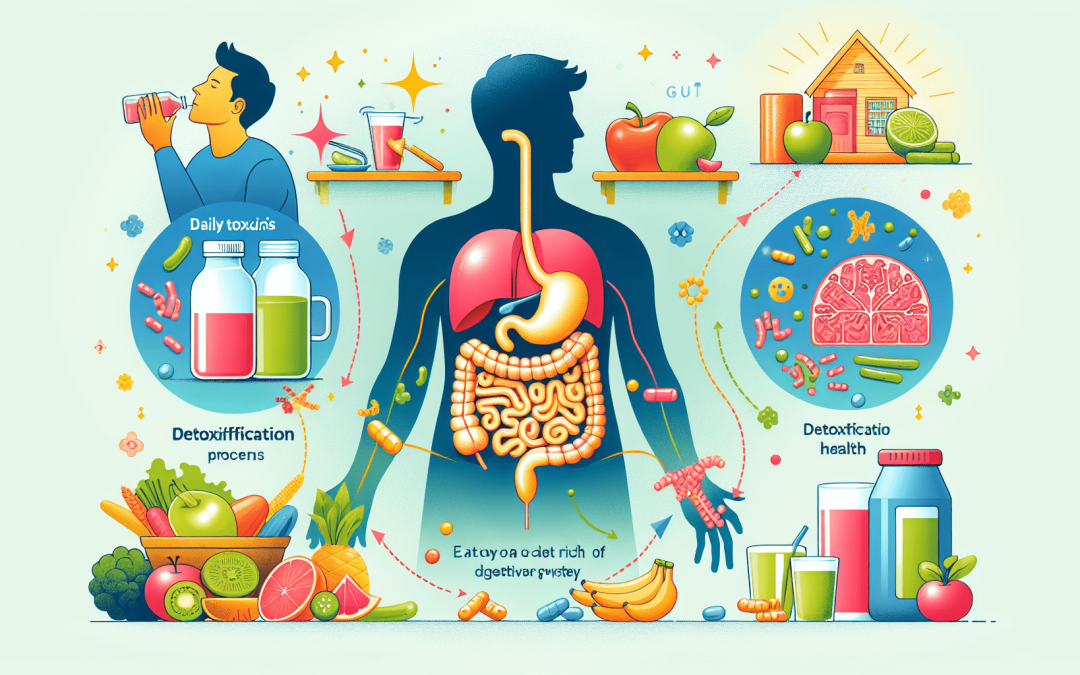If you’ve been feeling sluggish, bloated, or experiencing digestion issues, it may be time to give your gut a reset. Achieving optimal gut health has become a popular goal among health enthusiasts, and one effective approach is through a detoxification process. By removing harmful toxins and promoting a healthy balance of gut bacteria, a gut detox can help improve digestion, boost energy levels, and promote overall well-being. In this article, discover the ins and outs of gut detoxification and learn how to embark on a journey towards a healthier, happier you.

Understanding Gut Health
The importance of gut health
Gut health is crucial for overall well-being, as it plays a significant role in various bodily functions. The gut, also known as the digestive tract, is responsible for digesting and absorbing nutrients from the food we consume. Additionally, it hosts millions of bacteria and other microorganisms that form the gut microbiome, which plays a vital role in maintaining a healthy immune system, synthesizing essential vitamins, and even influencing our mental health.
When the gut is in good health, it efficiently breaks down food, absorbs necessary nutrients, and eliminates waste products. However, when the gut is compromised, it can lead to a range of health issues, including digestive problems, weakened immunity, food intolerances, and even mental health disorders. Therefore, understanding and maintaining gut health is paramount for overall well-being.
The connection between gut health and overall well-being
Research has uncovered an undeniable link between gut health and overall well-being. The gut and the brain are directly connected through the gut-brain axis, a bi-directional communication network. This means that the health of your gut can influence your mood, mental health, and cognitive functions.
Moreover, approximately 70% of the body’s immune cells are located in the gut. This highlights the crucial role that gut health plays in supporting a strong immune system. When the gut microbiome is imbalanced or compromised, it can lead to a weakened immune system, making you more susceptible to illness and infections.
Additionally, poor gut health has been associated with various chronic conditions such as inflammatory bowel disease, obesity, and even certain types of cancer. Therefore, prioritizing gut health is essential for maintaining optimal well-being.
What is Detoxification?
Definition of detoxification
Detoxification refers to the process of eliminating toxins and harmful substances from the body. It is a natural bodily function performed by organs such as the liver, kidneys, skin, and even the gut. These organs work together to filter out and eliminate toxins that may have entered the body through environmental factors, dietary choices, or medications.
While the body has its detoxification mechanisms, supporting and enhancing these processes can be beneficial, especially for gut health. Detoxification aims to remove toxins, reduce inflammation, and promote optimal functioning of the digestive system.
Importance of detoxification for gut health
Detoxification plays a crucial role in maintaining gut health. When toxins accumulate in the body, they can disrupt the balance of the gut microbiome, leading to imbalances and dysbiosis. This imbalance can result in various gut-related issues, such as bloating, constipation, diarrhea, and increased intestinal permeability (leaky gut).
By actively supporting the detoxification process, you can help eliminate these harmful toxins and restore balance to the gut. This, in turn, promotes a healthier gut microbiome and overall gut health. Detoxification also helps in reducing inflammation, which is often associated with poor gut health and chronic conditions such as inflammatory bowel disease.
Signs of Poor Gut Health
Digestive issues
One of the most common signs of poor gut health is digestive problems. These may include symptoms such as bloating, gas, diarrhea, constipation, and abdominal pain. When the gut is imbalanced or compromised, it can lead to difficulties in digesting and absorbing nutrients, resulting in digestive discomfort and irregular bowel movements.
Food intolerances
Food intolerances can also be indicative of poor gut health. When the gut is not functioning optimally, it can develop sensitivities to certain foods. This can manifest as symptoms such as bloating, diarrhea, or other gastrointestinal discomfort after consuming specific foods.
Weakened immune system
As mentioned earlier, a significant portion of the body’s immune system is located in the gut. Therefore, when the gut health is compromised, it can weaken the immune system, making you more susceptible to infections, illnesses, and allergies.
Mental health disorders
Research has shown a strong correlation between gut health and mental health. Poor gut health has been associated with an increased risk of mental health disorders such as depression, anxiety, and even cognitive decline. The gut and the brain communicate via the gut-brain axis, and imbalances in the gut can lead to dysregulation in the brain, affecting mood and mental well-being.
Benefits of Gut Detoxification
Improved digestion
One of the primary benefits of gut detoxification is improved digestion. By removing toxins and promoting a healthier gut microbiome, detoxification can enhance the efficiency of the digestive system. This can lead to smoother digestion, improved nutrient absorption, and a reduction in digestive issues such as bloating and constipation.
Boost in energy levels
When the gut is overloaded with toxins and imbalances, it can put a strain on the body, leading to feelings of fatigue and low energy levels. Detoxification helps remove these burdens from the gut, allowing the body to function optimally and improving energy levels. You may experience increased vitality and improved overall well-being as a result of gut detoxification.
Enhanced immune system
Detoxifying the gut can significantly boost immune system function. By removing toxins and reducing inflammation, the body’s immune system is better able to protect against infections and illnesses. A strong immune system is essential for overall health, and gut detoxification can play a vital role in strengthening it.
Improved mood and mental health
Research has shown that there is a direct connection between gut health and mental health. By supporting gut health through detoxification, you can positively impact your mood and mental well-being. A healthier gut microbiome can lead to the production of neurotransmitters such as serotonin, which plays a crucial role in regulating mood. Therefore, gut detoxification can contribute to improved mental health and emotional well-being.

Natural Ways to Detoxify the Gut
Dietary changes
One of the most effective ways to detoxify the gut is through dietary changes. Eliminating processed foods, refined sugars, and artificial additives can help reduce the toxin load on the gut. Instead, focus on consuming whole, nutrient-dense foods such as fruits, vegetables, lean proteins, and healthy fats. Additionally, incorporating fiber-rich foods can aid in regular bowel movements and the elimination of toxins from the body.
Probiotics and prebiotics
Probiotics are beneficial bacteria that can help restore balance to the gut microbiome. Consuming foods or supplements that contain probiotics can support gut health. Prebiotics, on the other hand, are specialized plant fibers that nourish the beneficial bacteria in the gut. They can be found in foods such as onions, garlic, bananas, and whole grains. Incorporating both probiotics and prebiotics into your diet can help promote a healthy gut microbiome.
Herbal supplements
Certain herbal supplements have been shown to have detoxifying properties and support gut health. Milk thistle, dandelion root, and burdock root are commonly used herbs that aid in liver detoxification, which indirectly supports gut health. Always consult with a healthcare professional before starting any herbal supplements to ensure they are suitable for you and your specific needs.
Intermittent fasting
Intermittent fasting is a dietary approach that involves cycling between periods of fasting and eating. This fasting period allows the body to focus on detoxifying and repairing itself, including the gut. It can promote the elimination of toxins, reduce inflammation, and support autophagy – the process by which the body breaks down and removes damaged cells.
Detoxification Protocols
Elimination diet
An elimination diet involves removing common allergenic or inflammatory foods from your diet for a period of time and then gradually reintroducing them to identify any potential sensitivities. By eliminating these foods, you can give your gut a chance to heal and detoxify. This can help to identify trigger foods that may be contributing to gut health issues.
Colon cleanse
A colon cleanse is a method of detoxifying the colon, which is a crucial part of the gut. This can be done through various methods, such as herbal supplements, enemas, or colon hydrotherapy. The goal of a colon cleanse is to remove built-up waste and toxins from the colon, promoting a healthier gut environment.
Liver cleanse
The liver is a vital organ involved in detoxification. A liver cleanse aims to support liver function by eliminating toxins and promoting liver regeneration. This can be done through dietary changes, incorporating liver-supporting herbs, and staying hydrated. However, it is important to approach a liver cleanse cautiously and under the guidance of a healthcare professional.
Juice cleanse
A juice cleanse involves consuming only fresh fruit and vegetable juices for a specific period, typically a few days. This detoxification method aims to flood the body with nutrients while providing a break from solid foods. Juice cleanses can provide a quick boost in vitamins and minerals while allowing the gut to rest and detoxify.

Potential Risks and Considerations
Consulting a healthcare professional
Before embarking on any detoxification protocols or making significant dietary changes, it is essential to consult with a healthcare professional. They can provide personalized guidance and ensure that any detoxification methods are safe and suitable for your specific needs. This is particularly crucial if you have any underlying health conditions or are taking medications.
Individual differences and sensitivities
It is important to remember that everyone’s body is unique, and what works for one person may not work for another. Some detoxification methods or dietary changes may not be appropriate or well-tolerated by certain individuals. It is always essential to listen to your body and make adjustments accordingly. If you experience any adverse reactions or discomfort during the detoxification process, consult with a healthcare professional.
Building a Healthy Gut Microbiome
Introduction to gut microbiome
The gut microbiome refers to the community of microorganisms that reside in the digestive tract. This ecosystem consists of various bacteria, fungi, viruses, and other microorganisms, which collectively play a crucial role in maintaining gut health and overall well-being.
The role of bacteria in gut health
Bacteria are the most abundant microorganisms in the gut microbiome and have a significant impact on gut health. They help in breaking down dietary fibers, producing essential vitamins, and even metabolizing certain medications. Additionally, beneficial bacteria in the gut can prevent the overgrowth of harmful bacteria and contribute to a healthy gut barrier function.
How to promote a healthy gut microbiome
Maintaining a healthy gut microbiome is essential for overall gut health. Some ways to promote a thriving gut microbiome include:
- Eating a diverse range of fiber-rich foods, as this provides nourishment for beneficial gut bacteria.
- Avoiding excessive use of antibiotics, as they can disrupt the balance of the gut microbiome.
- Consuming fermented foods such as yogurt, sauerkraut, and kimchi, as they contain beneficial live cultures that can support a healthy gut.
- Managing stress levels, as chronic stress can negatively impact the gut microbiome.
- Limiting the consumption of processed foods and sugary beverages, as they can promote the growth of harmful bacteria.

Maintaining Gut Health
Balanced diet
Maintaining gut health is heavily dependent on consuming a balanced and nutrient-rich diet. Focus on incorporating a variety of fruits, vegetables, whole grains, lean proteins, and healthy fats into your meals. This helps provide the necessary nutrients for optimal gut function and supports the growth of beneficial gut bacteria.
Regular exercise
Exercise not only benefits physical fitness but also supports gut health. Regular physical activity helps stimulate digestion, reduce inflammation, and support a healthy gut microbiome. Aim for at least 30 minutes of moderate-intensity exercise most days of the week to promote gut health.
Stress management
Chronic stress can have detrimental effects on gut health. It can disrupt the balance of the gut microbiome, impair digestion, and weaken the gut barrier function. Therefore, incorporating stress-management techniques such as meditation, yoga, deep breathing exercises, and engaging in activities you enjoy can help support gut health.
Adequate sleep
Getting sufficient sleep is crucial for overall health, including gut health. Lack of sleep can disrupt the balance of the gut microbiome, increase inflammation, and impair digestive processes. Aim for 7-9 hours of quality sleep each night to support optimal gut health.
Hydration
Staying adequately hydrated is vital for maintaining a healthy gut. Water helps regulate digestion, promote regular bowel movements, and support the elimination of toxins. Aim to drink at least 8 cups (64 ounces) of water per day and adjust accordingly based on your individual needs and activity levels.
Conclusion
Understanding and prioritizing gut health is essential for overall well-being. By supporting gut health through detoxification processes, you can experience improved digestion, increased energy levels, enhanced immunity, and even better mood and mental health. Natural methods such as dietary changes, incorporating probiotics and prebiotics, and intermittent fasting can contribute to a healthier gut. However, it is crucial to consider individual differences, consult with a healthcare professional, and focus on building and maintaining a healthy gut microbiome through a balanced diet, regular exercise, stress management, adequate sleep, and hydration. By taking proactive steps towards achieving and maintaining gut health, you can improve your overall health and well-being.









